Most of us probably know that not all fluids are the same. Some differences can include consistency, color, odor, and even weight. If you wonder how much a gallon of gasoline weighs, we can help you. We researched this fuel from numerous professional sources so you'd know for sure how heavy that can will be.
A gallon of gasoline will weigh 6.1 pounds. This does not include any container or container lid in which the gas might be stored.
Now that we know that a gallon of gasoline weighs six pounds, we'll look at why any fuel's weight is important to know. You might also be wondering if gasoline is heavier than water or how you can tell if there is water in your gas tank. For the answers to these questions and more, read ahead in this post and see what our research has shown.
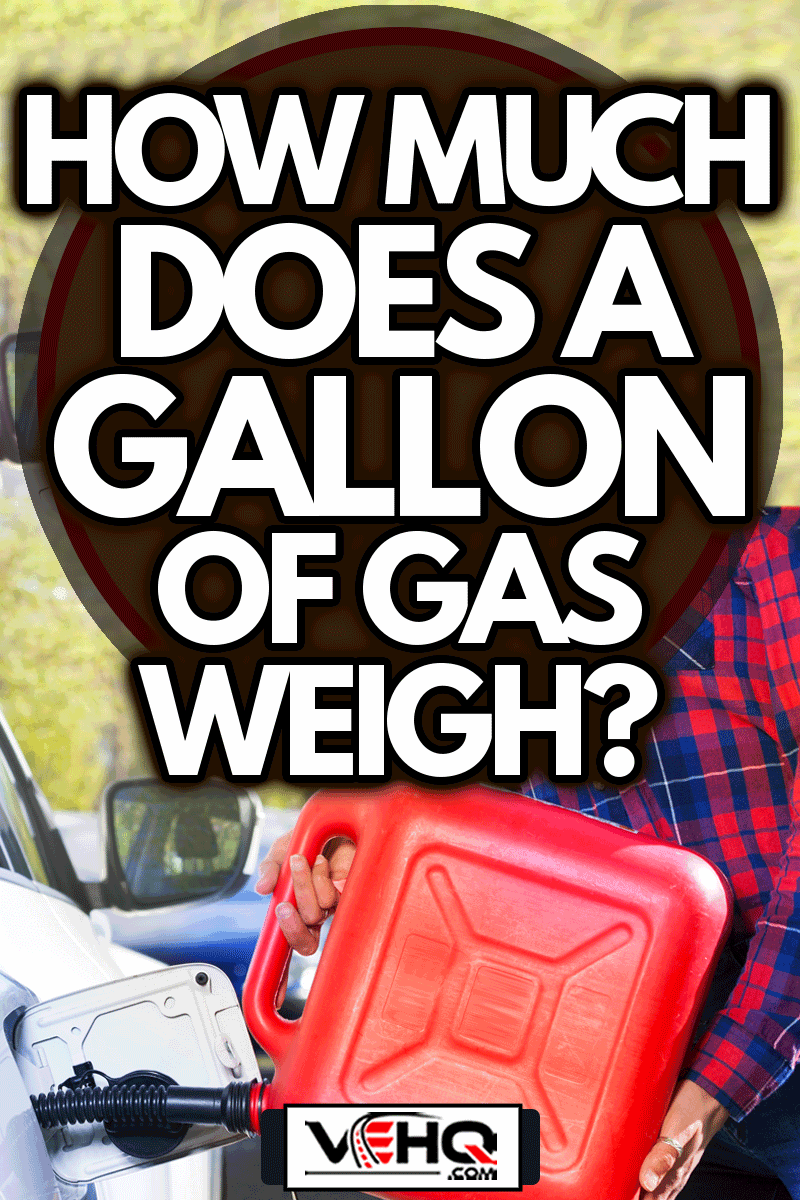
Why the weight of fuel is important
Knowing what fuel weighs is an essential bit of knowledge. While six pounds of weight per gallon doesn't sound like much, it's a weight that can certainly add up when you are hauling it. For vehicles that might be close to being overloaded, factoring in every last pound of weight counts and fuel shouldn't ever be left out of the equation.
Those who haul fuel for a living will need to know the various weights of the different fuels they haul. The liquid is heavy, and being over the legal weight in a tractor-trailer carries some pretty stiff penalties. Knowing just how much you can carry in that tanker on the highways will save a driver a lot of money in fines.
Pilots also need to know the weight of their fuel, as this will factor in how many passengers and how much cargo they can carry onboard. A half-empty tank on a short trip could mean extra weight allowed on board.
What is heavier, gasoline or water?
Earlier in this post, we stated that a gallon of gasoline will weigh 6.1 pounds. When comparing this volume to a gallon of water, you might think that gasoline is heavier.
In reality, it is water that is heavier than gasoline. A gallon of water weighs 8.3 pounds, a difference of 25%!
You can tell that water is denser than gasoline by how the two react. Being lighter, gasoline will float on top of the water, so you'll sometimes see slicks of it on the surface of lakes.
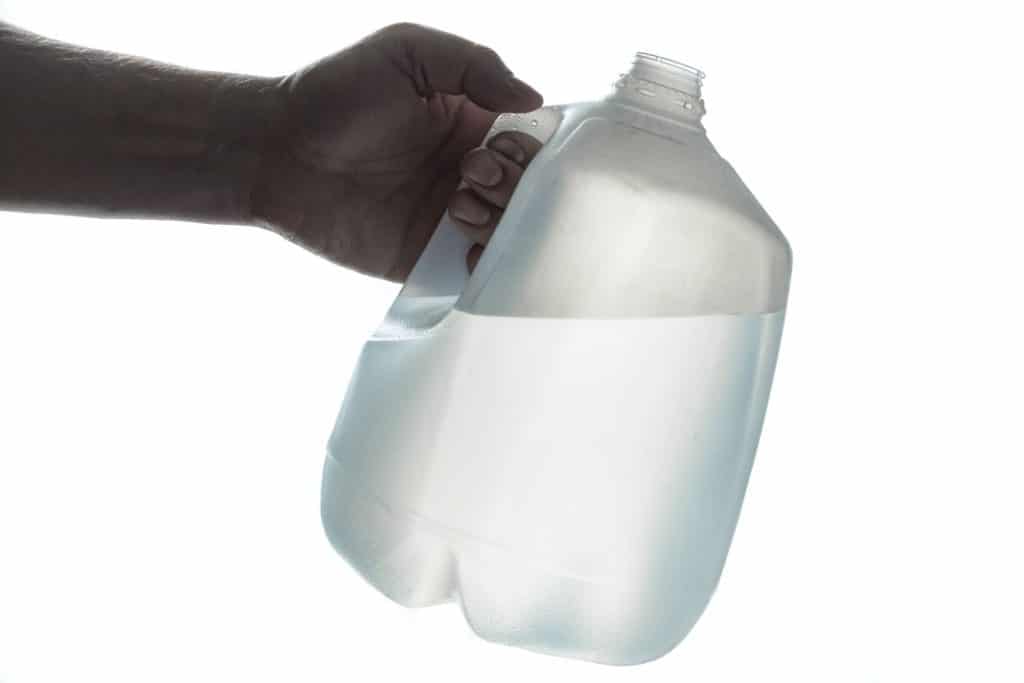
How long does it take for water to separate from gasoline?
Though you should be able to see some separation between the two liquids very quickly, it will take a bit of time for water and gasoline to separate from each other. Multiple boating forums indicate that a full day will pass before this happens. The heavier water will settle to the bottom of the tank or container the two liquids are in.
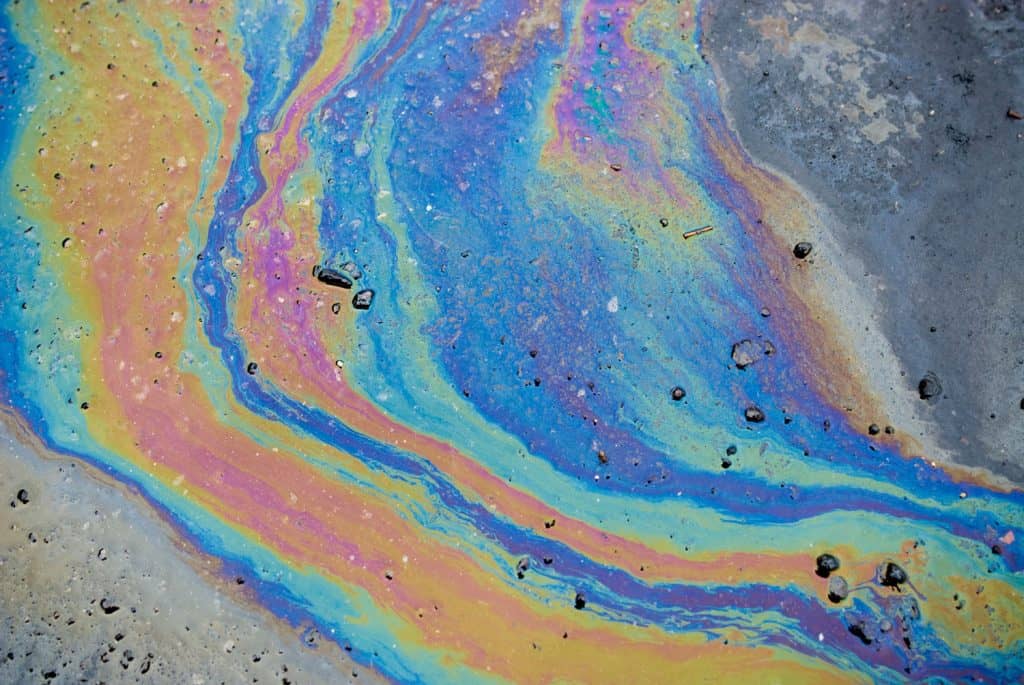
What is the best fuel treatment for water in the gas tank?
Should you get water into your fuel tank, all is not lost. Water can get inside your fuel line for several reasons, ranging from deliberate actions to natural condensation building up over time. While not uncommon, it's important to get the water out as soon as possible.
Many additives can be purchased at your local automotive store to take care of the problem. The most commonly used brand is HEET. This can be found at nearly every major automotive part chain and at most locally owned ones.
HEET works to absorb the water molecules in your gas tank and fuel line. Once they are absorbed, HEET will be burned out of your engine with the gasoline.
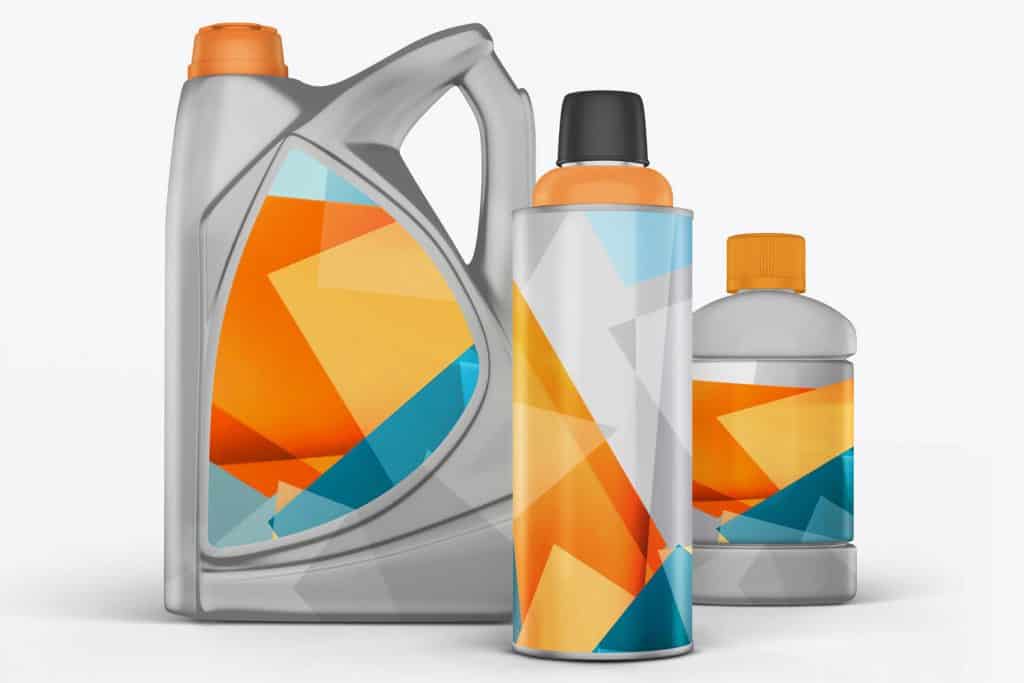
How can you tell if you have water in your gas tank?
Over time, many of us will experience water in the fuel tanks of our vehicles. The vast majority of the time, this is through no fault of our own. It can naturally happen over time or is sometimes due to contaminated gasoline.
There are signs that your fuel tank is partially full of water. You might suspect that there is water where it shouldn't be if you notice any of these symptoms:
Rough accelerations
One of the tell-tale signs of water in the fuel line is a rough acceleration. Any foreign liquids or solids throw off the air to fuel ratio in the combustion chamber. This will make the sensors not work correctly and cause them to under or overcompensate as they think there is too much or not enough fuel in the mixture.
This means that the engine won't be able to accelerate properly. It can sputter while trying to gain speed, or it could cause the engine to stall.
Engine misfires
When water enters the combustion chamber of your vehicle's engine, it can cause the spark plugs to misfire.
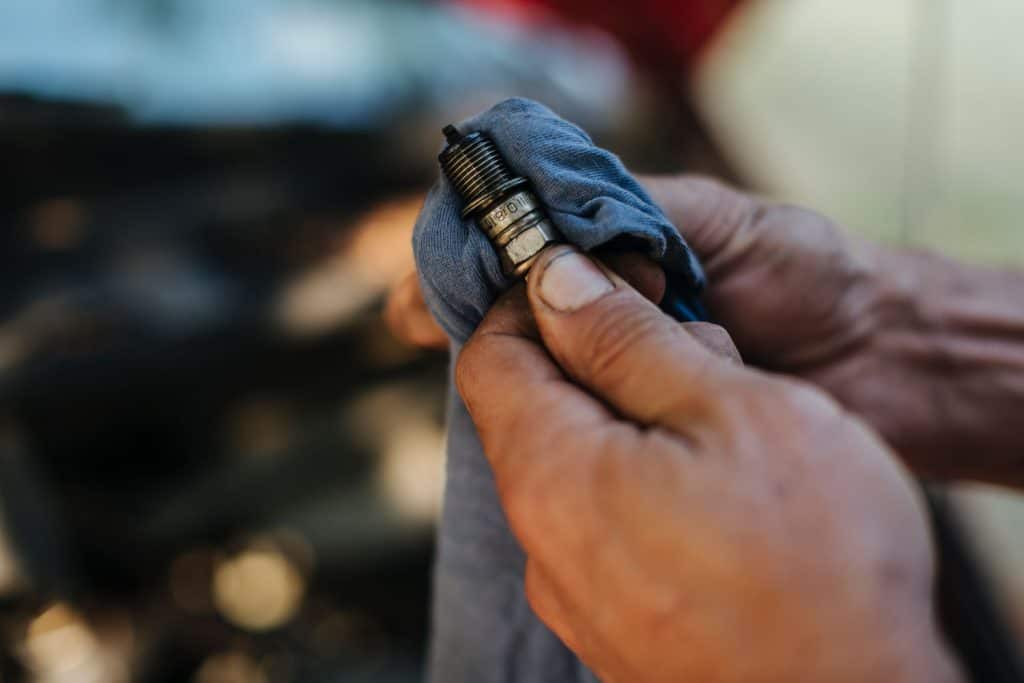
The car idles roughly
The water in the fuel line will impact how it idles, much in the same way it interferes with the acceleration. You'll notice that the engine doesn't hum as smoothly and sounds and feels like it can't keep a constant idling speed.
Steam from the exhaust pipe
Should there be too much water in the fuel tank, the heat from the engine will make it begin to evaporate. This will make it appear in the form of steam.
Steam coming out of your exhaust is a pretty good indicator of there being a good amount of water where it shouldn't be. While this could mean that the water is in the gas tank, it can also mean that your exhaust system has taken on water.
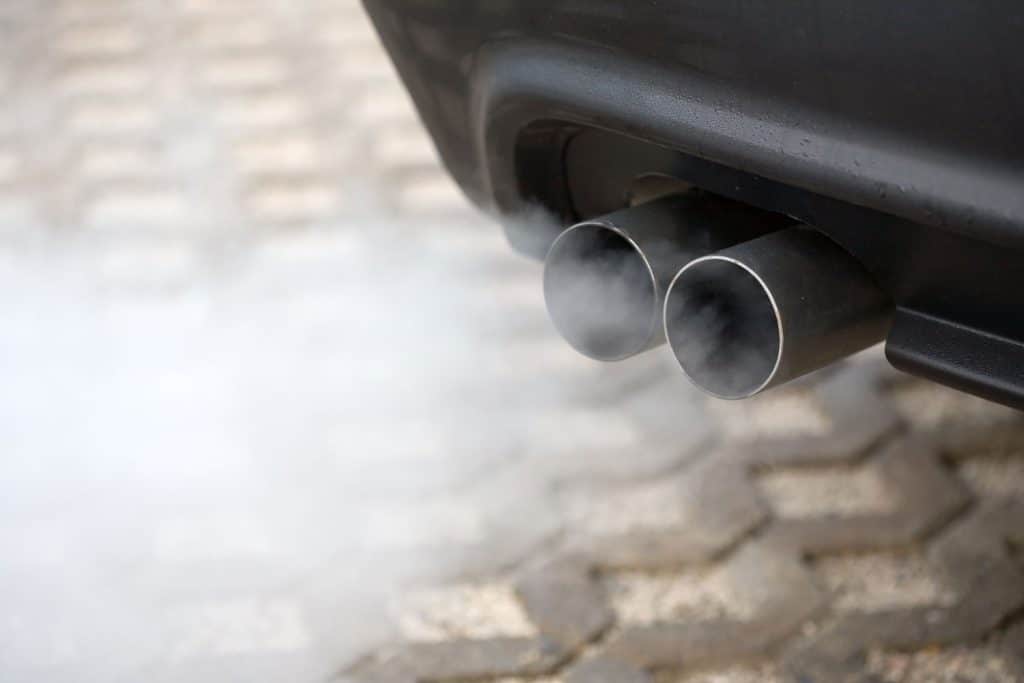
Slow acceleration
The sensors that detect whether your engine's fuel to air ratio is proper will not function properly if there is water in the fuel. This can cause the sensors to think the mixture is too lean.
The result here can be a very slow acceleration.
What does sugar do to a gas tank?
What might sound like a harmless prank is something that can cause permanent damage to someone's vehicle. Sugar being introduced to the fuel tank of any combustion engine should be avoided at all costs.
Sugar will not dissolve in gasoline as it will in water. Instead, it settles in the bottom of the tank as if it were sand. When any jostling occurs, the grains of sugar will be suspended in the tank, moving into the fuel line. The fuel filter will begin to catch them, but the filter will be rendered useless over time.
When grains of sugar get through to the combustion chamber, they will cause the engine to misfire and possibly make acceleration sluggish. This problem can only be solved by draining the fuel tank and the fuel line and installing a new fuel filter.
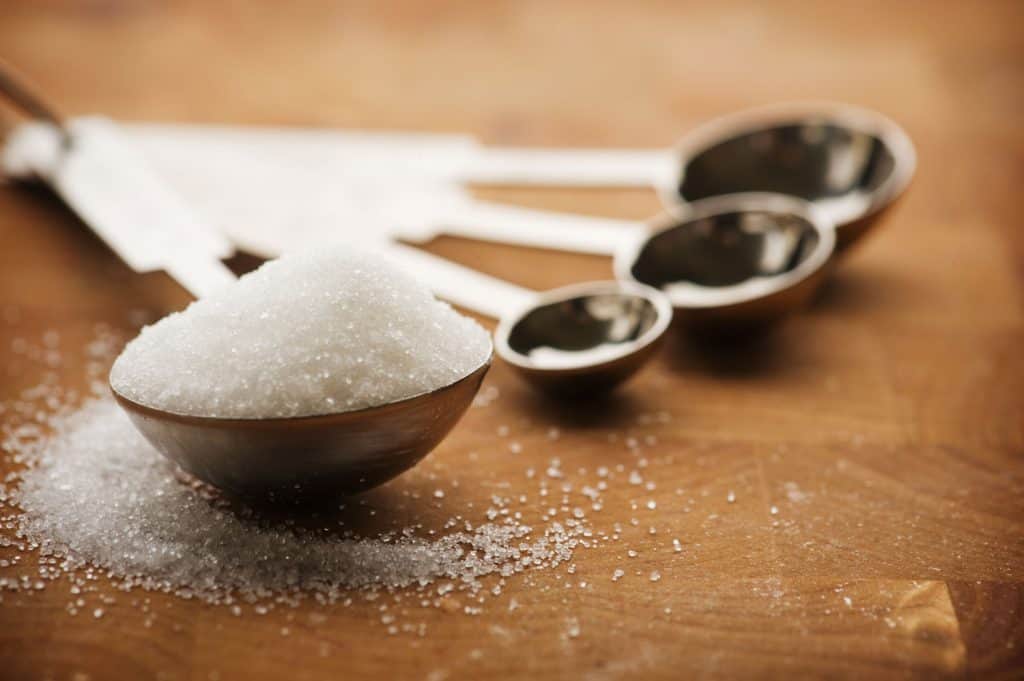
Final thoughts
The weight of fuel is essential in determining how much passenger or cargo weight can be brought aboard. As water is heavier than gasoline, it will sink to the bottom of a fuel tank and cause many problems when you operate the vehicle. Getting water out of your fuel system is as easy as using an approved additive. Drive safe!
We hope you found this post on fuel to be helpful. For more useful information, we recommend reading the following posts:
How To Rejuvenate And Recondition Old Gasoline?
